Tech Insights and Strategies for a Future-Forward Property Management Application
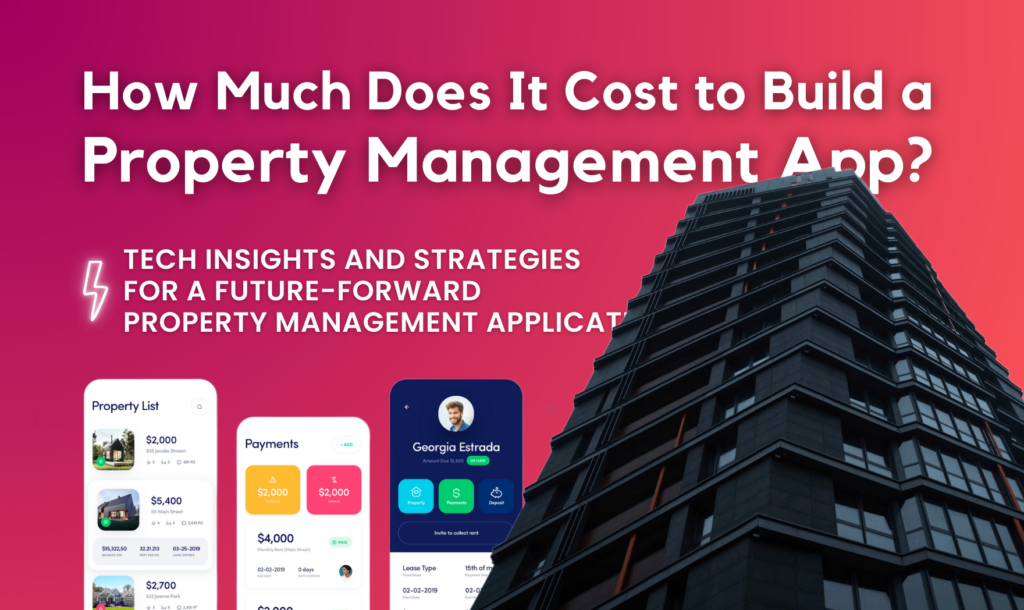
Say goodbye to the hassles of paperwork, late-night maintenance calls, and rent-check follow-ups. Introducing a new era of innovation in property management via the use of cutting-edge technological solutions, eliminating the antiquated conventions of the past. This isn’t merely about operational efficiency; it’s a guide to help you craft a top-notch Property Management App, ensuring a seamless, convenient, and delightful experience for both landlords and residents. Get ready to build communities within your properties that leverage the latest advancements in AR, VR, blockchain, and AI technology.
- According to a survey by AppFolio, a remarkable 87% of renters perceive a mobile-first property management app as “somewhat” or “very” valuable.
- In today’s fast-paced world, tenants are increasingly seeking continuous communication with their landlords, with 72% expecting 24/7 accessibility—a demand that property management apps conveniently fulfill, as noted by Buildium.
- Millennials, constituting a significant portion of renters, express a keen interest in on-demand services such as laundry or grocery delivery facilitated by property management apps, with 61% finding these offerings particularly appealing, according to Yardi’s research.
These statistics underline not just the demand for property management apps but also the varied benefits they bring to both landlords and tenants alike.
Beyond the Basics: Redefining Property Management
Property management is no longer a mere routine of collecting rent and overseeing properties. With the latest advancements in technology, the possibilities are vast and transformative.. From managing leases to automating rent payments, tracking maintenance requests, and fostering tenant communication, a PMS redefines the landscape of property operations, elevating efficiency and accuracy.
Types of PMS
- Residential PMS: Focuses on apartments, condominiums, single-family houses, and student housing. It manages leases, rent collection, maintenance requests, resident communication, and more.
- Commercial PMS: Tailored for office buildings, retail spaces, industrial properties, and mixed-use developments. It handles tenant relationships, lease administration, rent and expense tracking, and maintenance for larger commercial spaces.
- Vacation Rental PMS: Designed for short-term rentals like Airbnb and Vrbo listings. It simplifies booking management, guest communication, cleaning coordination, dynamic pricing, and secure online payments.
Essential Features of a PMS
- Tenant Management: Create resident profiles, track leases, and manage rent payments, including online and automated options.
- Accounting and Financial Management: Generate invoices, track income and expenses, and handle deposits and refunds.
- Maintenance Management: Track maintenance requests, schedule repairs, and manage communication with vendors.
- Reporting and Analytics: Generate reports on occupancy rates, rent collection, and other key performance indicators (KPIs).
- Communication Tools: Send bulk emails, announcements, and notifications to tenants.
Advanced Features for the Tech-Savvy Landlord
Unleash the power of innovation with advanced features tailored to elevate the modern landlord experience. From immersive VR property tours to AI-powered chatbots, discover how cutting-edge technology transforms property management.
VR Property Tours
Transport potential tenants into the heart of your properties with immersive VR tours, eliminating the need for physical viewings. Grundum Immobilien in Germany witnessed a remarkable success story, leveraging Matterport VR tours. Their luxury properties saw an impressive 80% surge in buyer interest, leading to a 30% faster sales rate.
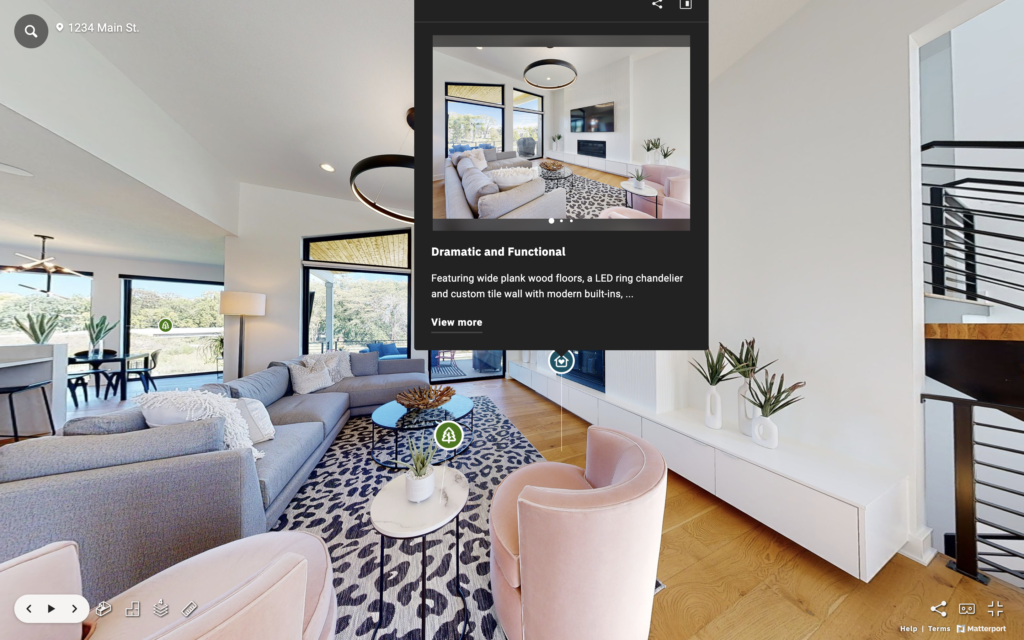
AI-powered Chatbots
Enhance your property management team with tireless AI chatbots, available 24/7 to handle frequently asked queries. In Texas, Austin Student Living achieved a substantial 75% reduction in phone calls with AI Chatbots, allowing their team to allocate more time to address complex issues and enhance overall operational efficiency.
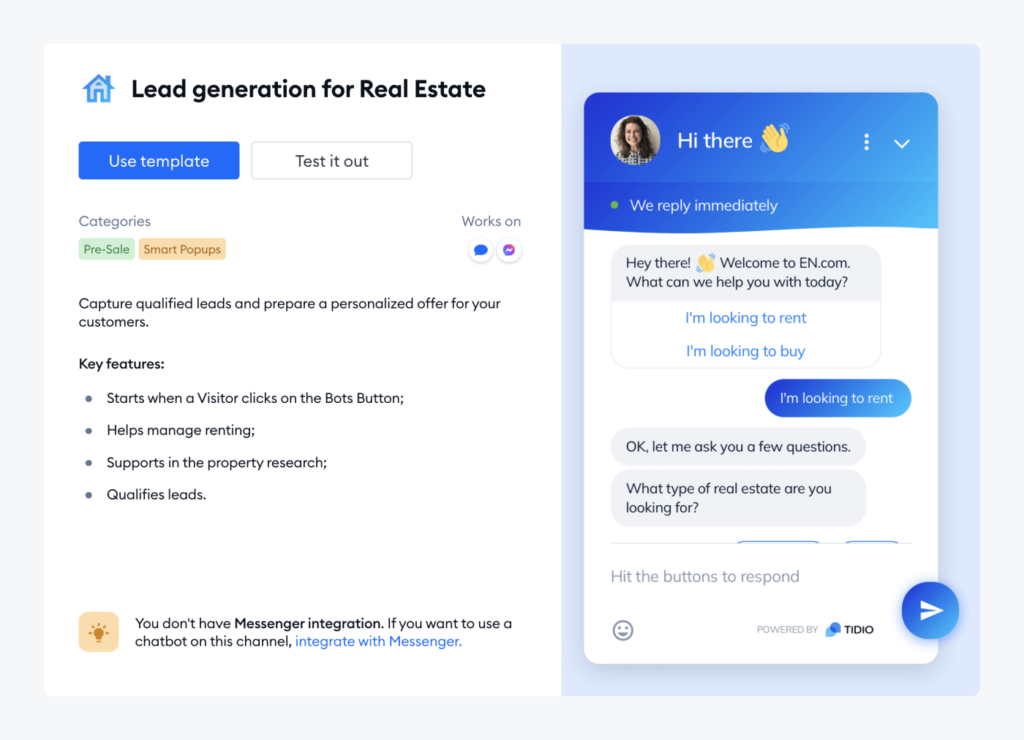
Smart Home Integration
Set off on a technological journey that enables remote control of crucial aspects like thermostats, lights, and appliances. By installing Latch smart solutions, Ocean View Residences in Miami, Florida, reduced energy costs by 15% and increased tenant satisfaction, enhancing overall comfort and convenience.
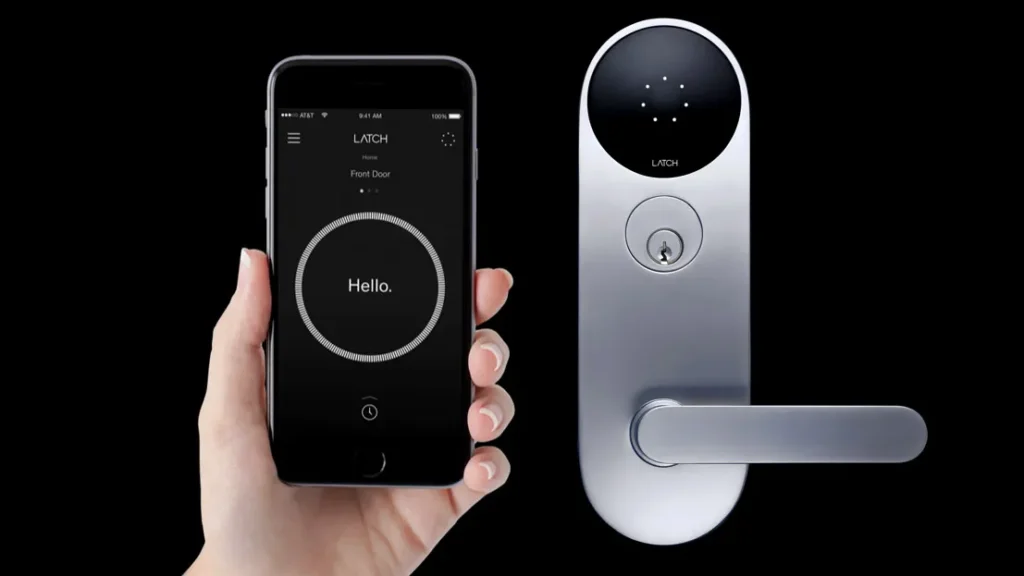
Blockchain Technology
Blockchain technology, while relatively new to the property management landscape, holds immense potential for reshaping the industry’s traditional processes. Currently, there are limited case studies of companies actively using blockchain in property management; however, its adoption is expected to rise in the future. The inherent security and transparency offered by blockchain, through decentralized ledgers and smart contracts, are poised to bring a revolutionary shift, making property transactions more secure, efficient, and resistant to fraud. As the real estate sector continues to embrace technological advancements, blockchain stands out as a promising solution that is likely to play a pivotal role in the evolution of property management practices.
Beyond Rent and Repairs: Expanding the Scope of Your PMS
While these core features are essential, the future of PMS lies in exceeding beyond basic expectations. Modern platforms offer a plethora of features that elevate the resident experience and build a thriving community:
Convenience and Service Enhancements
- On-demand grocery booking: Partner with local delivery services or a provider for convenient ordering and delivery directly through the PMS.
- Laundry services: Integrate with local laundromats or pick-up/delivery services for seamless booking and management.
- Package tracking and delivery management: Provide real-time tracking and notifications, eliminating missed packages and streamlining logistics.
- Pet services: Partner with pet walkers, sitters, or grooming services for easy booking within the platform.
- In-home services: Integrate with platforms like TaskRabbit or Handy for residents to book cleaning, handyman, or other services without leaving the app.
Community and Events Management
- Event calendar and booking: Manage and promote building events, resident gatherings, and social activities, fostering engagement and a sense of community.
- Resident communication tools: Facilitate communication through forums, groups, or direct messaging, building a connected community.
- Amenity booking and reservation system: Manage reservations for shared spaces like gyms, pools, or meeting rooms, preventing conflicts and ensuring fair access.
- Loyalty programs and rewards: Encourage engagement and brand loyalty by offering reward points for timely rent payments, referrals, or event participation.
Sustainability and Eco-friendly Features
- Energy tracking and usage insights: Integrate with smart home systems to provide residents with personalized energy usage data and tips for reducing their carbon footprint.
- Sustainable product marketplace: Partner with eco-friendly vendors to offer residents access to sustainable cleaning products, home goods, or grocery options directly through the PMS.
- Bike-sharing and carpooling integration: Encourage sustainable transportation options by partnering with bike-sharing services or connecting residents for carpooling within the platform.
By expanding the scope of your PMS beyond traditional functionalities, you can create a holistic platform that caters to diverse resident needs, strengthens community engagement, and fosters a more sustainable and convenient living experience. Remember, the possibilities are endless when it comes to innovating property management software – think outside the box and build a platform that truly sets your properties apart!
Exploring White-Label Solutions
Before delving into the intricacies of building your own, let’s explore the realm of white-label wonders available in the market. These solutions offer a ready-to-use approach, but what lies beneath the surface? Let’s unveil the landscape of white-label property management solutions and understand what each has to offer.
High-End Solutions
- AppFolio: A widely recognized brand offering robust features, excellent mobile app integrations, and strong reporting capabilities. Ideal for larger property management companies or landlords seeking a comprehensive solution.
- Buildium: Another well-established option with a user-friendly interface and strong customer support. Offers good customization options and integrations with popular third-party services. Best suited for mid-sized to large property portfolios.
- Yardi Voyager: Powerful platform packed with advanced features like accounting, budgeting, and analytics. More complex to set up and navigate, making it ideal for large portfolios or experienced users
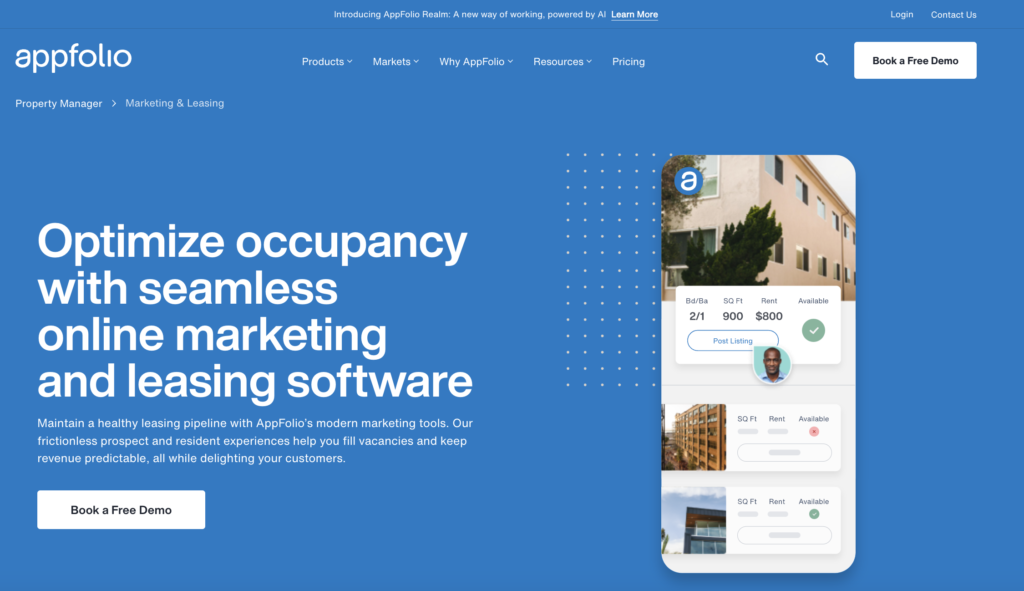
Growth-Focused Solutions
- Apprise: Known for its innovative features like resident portals, online rent payments, and automated workflows. Offers a good balance of functionality and affordability, making it attractive for growing property management companies.
- Rentec Direct: A cloud-based solution with simple pricing and a user-friendly interface. Ideal for small landlords or property managers new to white-label platforms.
- Hemlane: Modern platform with a focus on resident experience and community building. Offers features like event management, online forums, and resident rewards programs. Suitable for landlords looking to attract and retain tenants in competitive markets.
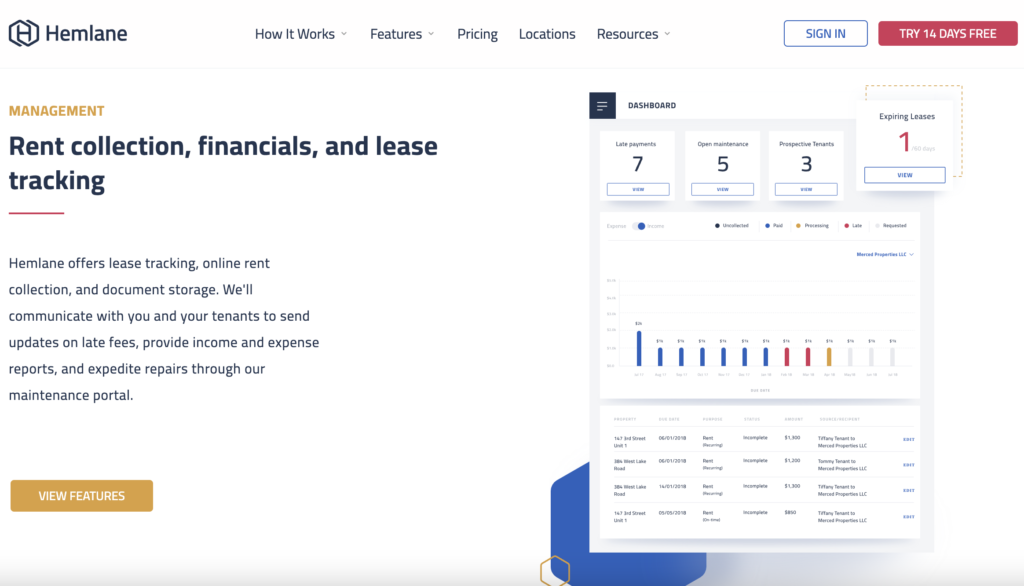
Budget-Friendly Options
- Cozy: Straightforward platform with basic features at an affordable price. A good starting point for small landlords or those managing a few properties.
- TenantCloud: Open-source option offering flexibility and customization at a low cost. Requires technical expertise to set up and maintain.
- RentCafe: Offers free and paid tiers with varying features. The free tier provides basic functionality for small landlords, while the paid tiers offer more advanced features.
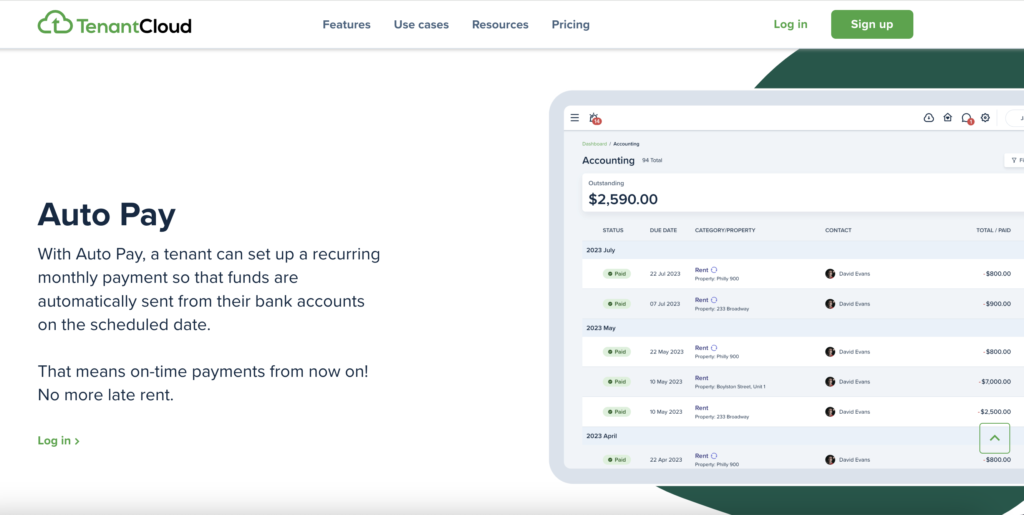
Crafting Your Own PMS
A Comprehensive Guide
1. Designing Your Minimum Viable Product (MVP)
Start with a Minimum Viable Product (MVP), a foundational version with essential features. Prioritize a user-centric design, ensuring the interface is intuitive and aligns with the needs of property managers, landlords, and tenants. Gather feedback for continuous refinement.
Build Your MVP in Just 90 Days!
Embarking on the journey to build your own PMS? Craft your Minimum Viable Product (MVP) in just 90 days with Wolfpack. We specialize in ideating, testing, and validating your idea efficiently at the optimum cost and time.
2. Embracing Cutting-Edge Technologies
Cloud-Native Solutions
Consider a cloud-native approach for scalability, flexibility, and enhanced security. Cloud platforms like AWS, Azure, or GCP provide a robust foundation.
Opt for industry-leading cloud platforms based on your specific needs. AWS offers a vast array of services, Azure integrates seamlessly with Microsoft environments, and GCP provides cutting-edge solutions. Serverless Options: Consider serverless computing for enhanced cost-efficiency.
Microservices Architecture
Leverage a microservices architecture for enhanced modularity and scalability. Breaking down the application into smaller, independent services allows for easier development and maintenance.
Discover the Future with MACH Technology
Explore our cutting-edge approach to technology – Microservices-enabled, API-first, Cloud-native, and Headless. At Wolfpack, we build solutions that are fit for today and the future. Unlock endless business flexibility with MACH Technology.
3. Technology Stack Breakdown
Backend
Choose a backend language (Python, Java, Ruby on Rails, or Node.js) based on scalability and community support. Select frameworks aligned with the language, such as Django, Spring Boot, Ruby on Rails, or Express.js. Opt for databases like PostgreSQL or MySQL and develop RESTful APIs for seamless integration.
| # | Language / Framework | Features |
| 1 | Python / Django | Known for its scalability, Django offers a mature ecosystem and a rich set of libraries. It’s a popular choice for rapid development. |
| 2 | Java / Springbot | Recognized for its enterprise-grade robustness, Spring Boot provides a well-established ecosystem and is suitable for large-scale applications. |
| 3 | Ruby on Rails | Known for its rapid development agility, Ruby on Rails is an excellent choice for startups and projects with evolving requirements. |
| 4 | Node.js / Express.js | Ideal for real-time applications, Node.js with Express.js offers flexibility and a lightweight structure. |
Frontend
Select web frameworks (ReactJS, AngularJS, or Vue.js) and cross-platform frameworks (React Native or Flutter) for mobile development.
| # | Web Framework | Features |
| 1 | ReactJS | Known for its component-based architecture and strong community support. |
| 2 | AngularJS | Offers a robust framework for dynamic web applications. |
| 3 | Vue.js | A lightweight and beginner-friendly framework. |
| # | Mobile Framework | Features |
| 1 | React Native | Enables cross-platform development, allowing you to build iOS and Android apps with a single codebase. |
| 2 | Flutter | Another cross-platform option providing a rich set of pre-designed widgets for a consistent user experience. |
Databases
Opt for databases that align with your scalability and flexibility requirements
| # | Database | Features |
| 1 | PostgreSQL | Known for its scalability, Django offers a mature ecosystem and a rich set of libraries. It’s a popular choice for rapid development. |
| 2 | MySQL | Recognized for its enterprise-grade robustness, Spring Boot provides a well-established ecosystem and is suitable for large-scale applications. |
| 3 | MongoDB (Serverless) | A NoSQL database that provides flexibility and scalability, suitable for serverless applications. |
Develop RESTful APIs to ensure seamless integration with third-party services.
4. DevOps
DevOps is the beating heart of effective software development, unifying development and operations to enhance collaboration, shorten development cycles, and deliver high-quality software. Here’s a breakdown of key DevOps practices:
- Git for Version Control: Ensure a collaborative and organized development environment with Git, allowing teams to track changes, manage code, and work seamlessly.
- CI/CD Pipelines: Implement Continuous Integration (CI) and Continuous Deployment (CD) pipelines to automate testing, integration, and deployment processes. This ensures consistent code quality and rapid delivery.
- Containerization with Docker: Use Docker for containerized development. Containers encapsulate applications and their dependencies, providing consistency across various environments.
In addition to the above practices, DevOps encompasses other crucial elements:
- Infrastructure as Code (IaC): Treat your infrastructure as code, enabling automated and reproducible infrastructure provisioning and management.
- Monitoring and Logging: Implement robust monitoring and logging solutions to gain insights into application performance and troubleshoot issues efficiently.
- Collaboration Tools: Utilize collaboration tools like Slack, Jira, or Microsoft Teams to enhance communication and coordination between development and operations teams.
DevOps is a holistic approach that goes beyond version control, CI/CD, and containerization. It embraces a culture of collaboration, automation, and continuous improvement throughout the software development lifecycle.
5. Security Measures
Safeguarding your Property Management System (PMS) is non-negotiable in today’s digital landscape. To ensure a robust defense against potential cyber threats, consider the following concise security measures:
- Secure Coding Practices: Adopt secure coding practices, focusing on writing code with built-in security measures. This includes input validation, avoidance of hard-coded passwords, and the use of parameterized queries to prevent common vulnerabilities like SQL injection.
- Data Encryption: Protect sensitive information during transmission and storage through data encryption. Use industry-standard encryption algorithms to secure tenant information, financial records, and communication logs.
- User Authentication and Authorization: Ensure robust user authentication with strong password policies and multi-factor authentication (MFA). Implement proper session management and define authorization controls based on user roles to limit unauthorized access.
- Regular Vulnerability Assessments: Conduct routine vulnerability assessments to proactively identify and address potential security weaknesses. Prioritize and apply patches or updates based on the risk assessment to mitigate potential threats.
Implementing these succinct security measures fortifies your PMS, upholding the confidentiality, integrity, and availability of critical property management data.
6. Cost Considerations
Building your Property Management System (PMS) involves several stages, each with its associated costs. Let’s break down the key components, providing a realistic estimate to guide your budgeting process.
- Design Phase:
- Engage UI/UX designers to create the visual blueprint of your PMS.
- Estimated Cost Range: $5,000-$7,000
- Development Phase:
- Execute the development of your PMS, including core features and functionalities.
- Estimated Cost Range: $15,000-$50,000
- Testing and Quality Assurance:
- Conduct thorough testing to ensure a bug-free and smooth-running PMS.
- Estimated Cost Range: $10,000-$15,000
- Hosting and Cloud Infrastructure:
- Choose a reliable cloud platform (e.g., AWS, Azure) for scalability and redundancy.
- Estimated Cost Range: $4,000-$10,000 (annual)
- Security Measures:
- Implement secure coding practices, encryption, and vulnerability assessments.
- Estimated Cost Range: $5,000-$10,000
- Post-Launch Maintenance:
- Budget for ongoing maintenance, updates, and potential feature enhancements.
- Estimated Cost Range: $10,000-$20,000 (annual)
Total Project Cost Range: $50,000-$125,000
Keep in mind that these estimates are indicative and can vary based on project complexity, specific requirements, and the expertise of your development team. Consulting with industry experts and obtaining detailed quotes for each stage will provide a more accurate picture of your project’s financial scope.
7. Additional Tips
As you navigate the path to building your Property Management System (PMS), consider these detailed tips to optimize your development journey:
- Collaborate with Domain Experts
- Engage with experienced property managers to understand their unique needs and challenges.
- Conduct workshops or interviews to gain insights into industry-specific requirements.
- Leverage this expertise to tailor your PMS to the real-world demands of property management.
- Prioritize Mobile-First Design
- Ensure your PMS is accessible and user-friendly on various mobile devices.
- Prioritize responsive design to accommodate the growing trend of mobile property management.
- Conduct usability testing on different devices to guarantee a seamless mobile experience.
- Focus on Integrations
- Allow seamless integration with popular payment gateways, smart home systems, and other relevant services.
- Prioritize APIs and open architectures to facilitate smooth connections with third-party applications.
- Consider the diverse tech ecosystem in property management, ensuring your PMS can adapt and integrate effectively.
- Gather User Feedback for Continuous Improvement
- Implement feedback loops within your PMS for both landlords and residents.
- Regularly collect feedback through surveys, reviews, or direct communication channels.
- Use this feedback to identify areas for improvement, address pain points, and enhance overall user satisfaction.
- Stay Agile and Adaptive
- Embrace an agile development approach to respond quickly to changing requirements.
- Plan for iterative releases, allowing you to incorporate feedback and adapt your PMS accordingly.
- Foster a culture of adaptability within your development team to navigate evolving industry trends.
Incorporating these detailed tips into your PMS development strategy ensures not only the creation of a robust system but also its continuous enhancement based on real-world user experiences and evolving industry needs.
The Future of PMS
As we peer into the future, three pivotal trends will shape property management software:
1. Artificial Intelligence (AI)
Artificial Intelligence (AI) is set to revolutionize property management by introducing predictive maintenance and personalized tenant recommendations. The integration of AI will lead to further automation and optimization of property management processes.
2. Integration with Internet of Things (IoT) Devices
The Internet of Things (IoT) will play a crucial role, providing real-time data on energy usage, security, and property conditions through sensors and connected devices. This will enable proactive and data-driven management.
3. Blockchain Technology
Blockchain stands as a secure and transparent technology that will revolutionize record-keeping, automate contracts, and enable secure financial transactions, especially in international rentals.
4. Augmented Reality (AR) and Virtual Reality (VR)
As the digital wave intensifies, Augmented Reality (AR) and Virtual Reality (VR) will play pivotal roles in property management. VR property tours offer a captivating showcase of properties without physical viewings, attracting global tenants.
Wrapping Up: Pioneering the Digital Landscape
Beyond brick and mortar lies a digital landscape overflowing with potential for property management. Embrace PMS solutions powered by cutting-edge technology; it’s not a luxury but a necessity for thriving in the evolving marketplace. The right software doesn’t just streamline operations; it creates a seamless and delightful experience for tenants. Unlock the potential of technology and build a property management empire that stands the test of time.
